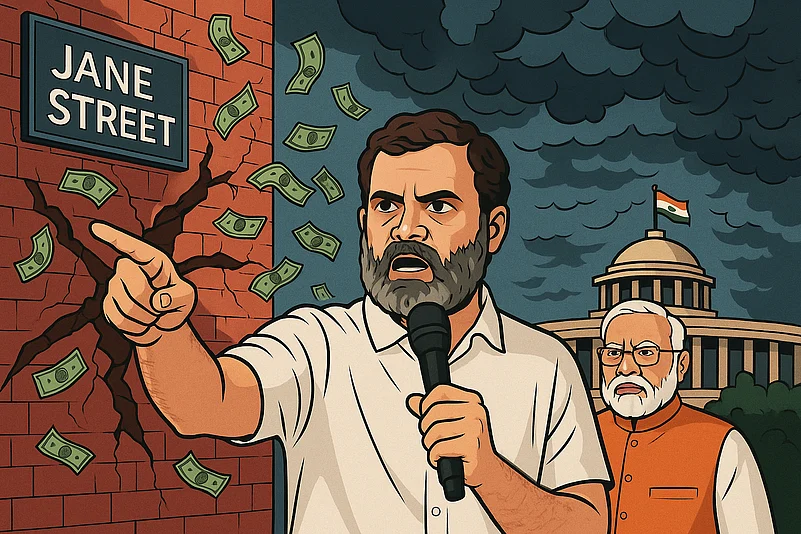The Securities and Exchange Board of India's (Sebi) recent clampdown on global trading firm Jane Street has taken on a sharply political dimension, with Congress leader and newly appointed Leader of the Opposition, Rahul Gandhi, launching a pointed critique of the Modi government's economic stewardship. Gandhi has alleged that ordinary investors are being left exposed while powerful financial players operate unchecked, a dynamic he argues is pushing small participants to the edge of financial collapse.
Gandhi referenced warnings he issued earlier in 2024 about the rising risks in the derivatives segment—particularly futures and options (F&O)—which he described as a market increasingly dominated by large players. According to him, the regulatory machinery failed to act in time, allowing foreign trading firms like Jane Street to exploit inefficiencies and weaknesses in India's financial markets to reap massive profits, allegedly at the cost of smaller retail investors.
The controversy emerged following Sebi's findings that Jane Street had manipulated prices in stocks and indices, particularly during monthly expiry sessions, in a manner that bolstered its options trading book. The firm, Sebi claims, employed a strategy that involved building up stock positions to inflate prices temporarily before exiting those trades later in the day—thus profiting from induced price swings in related options. The regulator estimates that this practice resulted in illicit gains exceeding Rs 4,800 crore. Those funds have since been frozen, along with the firm's bank and demat accounts. Sebi has also barred Jane Street and its Indian arm from trading while the probe continues.
The episode has had ripple effects across capital markets, with notable declines in the stocks of financial intermediaries and broking firms, as investors reacted to concerns about regulatory oversight and systemic stability. The National Stock Exchange (NSE) played a key role in detecting the suspect trades, and its forensic inputs helped fuel the ongoing investigation.
Beyond the immediate impact, Gandhi has framed the episode as part of a deeper structural problem. He has accused the Modi government of favouring elite financial interests while neglecting safeguards for everyday investors. In his view, this incident is not an outlier but a reflection of how imbalanced the market ecosystem has become.
Sebi, however, has defended its response. Chairman Tuhin Kanta Pandey reaffirmed the regulator's stance against manipulation, promising tighter surveillance in derivatives and other high-risk areas. BJP has also defended Sebi's action, saying that it was acting based on evidence and its action was a routine regulatory procedure.
Talk among financial professionals is still pretty divided. While some are making the case that this move will definitely help get investors to trust the market again, others are sounding a strong warning: a really tough approach could actually mess with how easily money moves around, especially since proprietary trading firms handle so much of the options volume.
Now, the Jane Street case, even though its details are unique, has become central to much bigger discussions here in India about whether our markets are truly fair, how well investors are protected, and if our financial regulators are really walking the talk.









